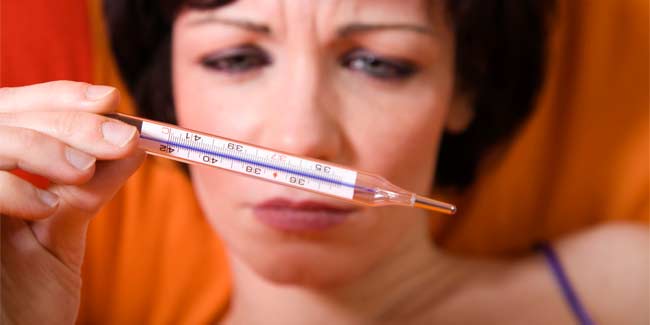
Dengue fever (DF) and dengue hemorrhagic fever (DHF) have increased dramatically in recent decades in many parts of the world including India. Epidemics of DF are becoming more frequent in India and currently as many as 13 states are reporting cases of DF/DHF in endemic and epidemic proportions. As symptoms of dengue fever in adults and children can be easily confused with the signs and symptoms of other diseases such as malaria or typhoid fever, it may be a challenge to diagnose dengue fever. Read to know how to identify symptoms of dengue fever.
Table of Content:-

The early signs and symptoms of dengue fever include
- Abrupt onset of high fever which may be up to 105ºF and can last for about 1-7 days. It may subside for 1-2 days and again recur.
- Headache along with fever (in front portion of head or behind the eyes).
- Joint and muscle pain (can be very severe and usually occurs after onset of fever). As the joint and muscle pain can be very severe the infection is also known as "break-bone" fever. The pain can worsen after its onset and may last for several weeks even after the fever has resolved.
- Nausea and vomiting.
- Loss of appetite.
- Change in taste.
- Pain behind the eye (Retro-orbital pain). The pain may worsen with eye movement.
- Rash: Measles like rash may appear on the torso (3 to 4 days after the onset of fever) and then extend to upper and lower limbs. The rash usually resolves after 1 to 2 days and may recur after a few days. The rash can be difficult to identify in dark skinned people.
The symptoms of dengue fever in children are similar to symptoms of a viral illness
- High fever.
- Running nose.
- Cough.
- A mild skin rash.
- Body pain. Older children may complain of severe back and body pain.
If you live in areas where dengue is common or have been to an endemic area and have high grade fever which persists for more than 48 hours, consult your doctor. If you start feeling worse in 1-2 days after the fever goes down, consult your doctor immediately to be checked for complications. Diagnosing dengue fever based on clinical symptoms can be a challenge since the signs and symptoms can be easily confused with the signs of several other diseases. Your doctor may recommend few blood tests to confirm the diagnosis. Dengue fever is a mild and self-limiting illness in most people and death or complications due to it can be prevented with prompt and appropriate care.
How we keep this article up to date:
We work with experts and keep a close eye on the latest in health and wellness. Whenever there is a new research or helpful information, we update our articles with accurate and useful advice.
Current Version